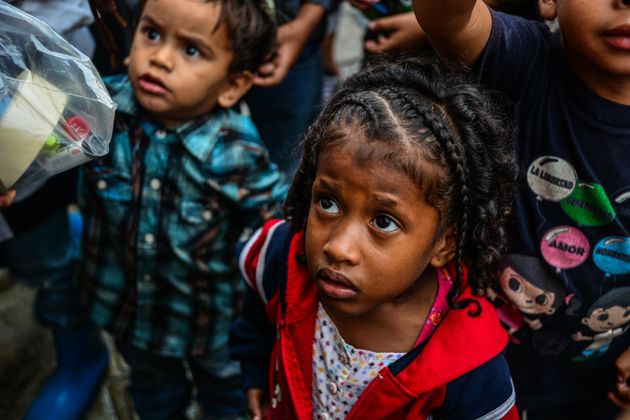The records of the group Verbigracia, focused on songs that denounce ecological issues that affect the Venezuelan territory, are obtained through the “Music for medicines” initiative developed by Provea.
“By grace of the word” would be the literal translation of the Latin expression Verbigracia, a word that was chosen by Robzayda Marcos Vera and Danilo Angulo to name the duet that, by force of their denounces, has wanted to read and express, through its songs, the Venezuelan political situation from a different place to the opposite pole of Chavez or the opposition.
In the last seven years ago, the vocalist and the guitar performer have made of singing their way of manifesting and demonstrating that their group is a different actor in national politics. “We are not saying what is good for one sector or another, but instead we say the whole word and we are concerned from where we live,” says Robzayda.
Whether against the atrocities committed in the Orinoco Mining Arc, the exploitation of the La Vieja hill (Lara) or the humiliations to which the Yukpas are subjected, Verbigracia has managed to raise its voice to denounce the violation of the human right to live in a better world.
The passion for music in Robzayda runs through her veins from a very young age. She grew up in a musical family listening to Soledad Bravo, Lilia Vera, Cecilia Todd, among other references that made her foster a taste for protest songs because they felt invisible in the media landscape. “We felt there was a void in the country and that’s when protests songs became necessary,” says the vocalist.
In the midst of a country that yells at the constant violation of all its rights by the Government, Verbigracia has wanted to focus on ecological issues and the defense of the rights of indigenous populations, taking into account that states throughout Latin America have made pacts with a megaextractionist industry without taking into account the irreversible damage it does to the planet.
Hence, her iron rejection of the Orinoco Mining Arc, whose creation is seen by Verbigracia as “a decree that we Venezuelans cannot admit or consent under any precept. Not only is it an ecocide, but it is the antecedent to the death of the rule of law in the country, ” forcefully affirms Robzayda.
The singer details that the Mining Arc “is an abolition of citizen rights in 12% of the national territory” and warns that there may be money laundering, drug trafficking and prostitution without allowing any Venezuelan the right to act for their rights.
In her opinion, when speaking about the Orinoco Mining Arc, not only is there an ecological danger, but also, the danger of “the death of the rights of human beings in that territory”.
For the duo, accepting the project of the Mining Arc is to accept the mining exploitation in the Cerro La Vieja, exploitation in the Valles del Tuy and in all the places “where they are forging businesses behind the backs of the Venezuelans”, which is the reason why Robzayda Marcos rejects that the Government signs agreements while ignoring the will of the people it claims to defend and considers it necessary to speak out with increasing force.
The songs of Verbigracia are mostly composed by Robzayda Marcos and arise from the analysis and study of problems that affect the country. They are currently involved in a process of research and information gathering on what the forced migration of the Pemones to Brazil meant.
In this regard, she explains that 1,800 people left their territory after Juan Guaidó’s attempt to enter humanitarian aid on February 23, which resulted in repression against the inhabitants of Santa Elena de Uairén and other border communities of Bolívar state. “Humanitarian aid ended up being the perfect excuse for the Army to invade, kill and deprive the Pemones from their lands,” says Robzayda, who states they are devising lyrics to address these issues with force.
To denounce her rejection of the creation of the Mining Arc, Verbigracia wrote “Contra el amo” and “Joyas de sangre dorada”, where they narrate the ecocide and genocide that the inhabitants of the area are being subjected to.
Sponsored by the talented Venezuelan musician and composer Aquiles Báez, the members of Verbigracia say they are “infinitely proud and amazed by Achilles’ gesture” and by his accompaniment full of wisdom.
Nonprofit, the group has refused to develop their work into a mercantilist discourse, so it has joined the campaign “Music for medicines” developed by el Programa Venezolano de Educación-Acción en Derechos Humanos- PROVEA (the Venezuelan Program of Education-Action in Human Rights) to collect medicines that are delivered to health oriented-organizations, with the purpose of helping to alleviate the critical situation that the aforementioned sector is going through.
“We want to give our support to a campaign that shows that Venezuelans are caring and are not tied to waiting for a vertical solution, but are organized to respond to their needs,” says Robzayda.




